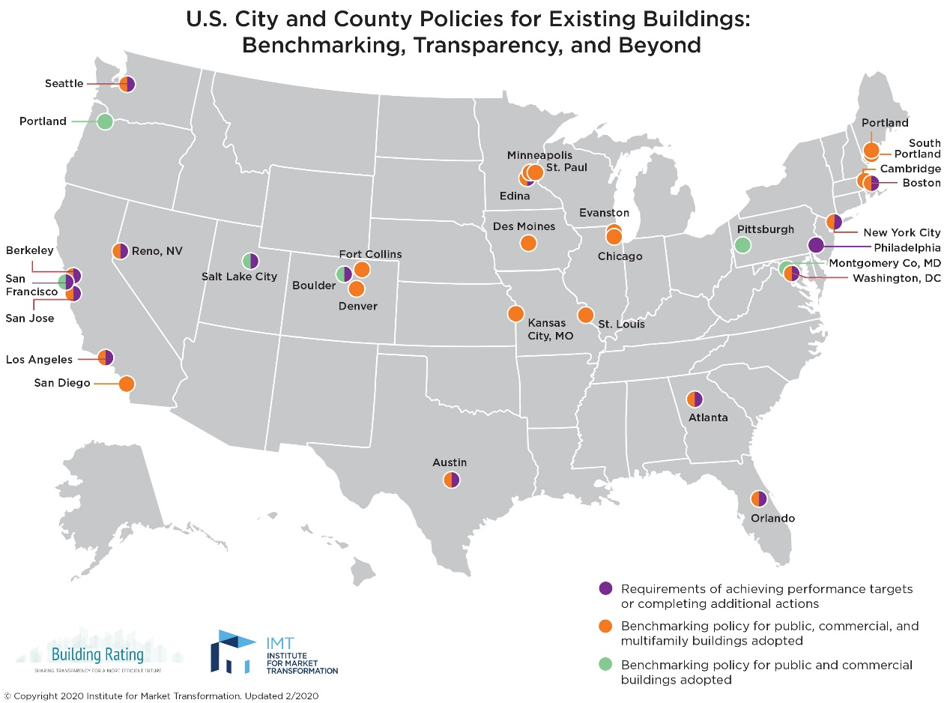
On a recent trip to San Francisco, I had the opportunity to do a few things the city is famous for – going to Fisherman’s Wharf, riding a cable car, seeing Chinatown, etc. – and all while helping multiple facilities meet their city energy audit requirements.
There are a lot of good reasons to get an energy audit performed at your building. Energy audits can identify conservation opportunities for energy and water, which can result in a tremendous impact to your bottom line. They can also find additional operational issues, such as repairs, equipment upgrades, ventilation issues, etc. that can save a lot of headaches down the road. Another great reason, however, is to comply with local energy efficiency mandates in your city – and some owners may not even realize these exist. I was reminded of this during a recent training presentation I made last month as part of the City of Atlanta Commercial Buildings Energy Efficiency Ordinance.
San Francisco and Atlanta are a couple of many cities throughout the country that require commercial buildings to benchmark their energy usage annually and perform a detailed energy audit every few years. We’ve noticed this as a trend throughout the country and found that some of our clients may not know about this until they receive a letter from their city informing them of the due date, or even worse, a violation notice.
In recent months, Burton has performed energy audits, assessments, or building tune-up studies to help clients meet their energy requirements in San Francisco, Atlanta, New York City, Seattle, Boston, and Boulder, CO to name a few cities. Burton also helps our clients manage their benchmarking requirements – energy audits are typically required every 5-10 years, but benchmarking is usually required on an annual basis using the ENERGY STAR® Portfolio Manager website. San Francisco, for example, requires energy audits every 5 years for all commercial buildings over 10,000 square feet, but the specific requirements vary by city.
So how do you know if your building is due for a city-mandated energy audit? The map below shows cities with both benchmarking requirements and those with more stringent requirements, such as an energy audit, retro-commissioning, or other performance-based initiative. Let us know if you have questions about these requirements or would like to know if these mandates apply to your buildings in these cities. You never know – just like ESPN College Gameday we may be “comin’ to your city” soon and can help out while we’re there!

